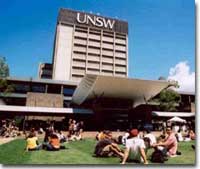|
||||
| Summary of Programs | ||||
The University provides facilities for approved students to engage in advanced studies and research in Law leading to the award of higher degrees.
The degree of Doctor of Philosophy (PhD) is available in the Faculty of Law (program 1730). This degree requires the completion of a program of research over a period of at least three years full-time study leading to the preparation of a thesis of not more than 100,000 words. The degree of Doctor of Juridical Science (SJD) (program 1740) requires completion of at least three years of full-time study (one year of coursework and two years of research leading to the preparation of a thesis). The degree of Master of Laws (LLM) may be undertaken either by coursework (program 9200 - one year full-time study) or by research (program 2440 - a program of research over a period of at least three semesters of full-time study leading to the preparation of a thesis). The degree of Master of Law and Management (MLM) (program 9210) is offered in part-time mode only over a minimum of five semesters in conjunction with the Australian Graduate School of Management. The Graduate Diploma in Law (GradDip, program 5740) is undertaken by coursework and requires the completion of two semesters of part-time study. The Master of Legal Studies (MLS) and the Graduate Diploma in Legal Studies (GradDipLS) are coursework programs offered over a minimum of two semesters to non-law professionals. The aim is to provide knowledge, skills and techniques needed to identify legal issues in the workplace. The framework allows for postgraduate law courses to be combined with postgraduate courses drawn from other disciplines. Entry to Legal Studies programs is available in Semester 1 only. Further information is available on the Law Faculty website at www.law.unsw.edu.au The Law School offers three new programs in 2007, the Master of International Law and International Relations (MILIR), the Graduate Diploma in International Law and International Relations (GDILIR), and the Master of Business Administration/Master of Laws (MBA/LLM). The Master of International Law and International Relations and the Graduate Diploma in International Law and International Relations, coursework programs offered over a minimum of two semesters, are joint programs of the Law School and the School of Politics and International Relations in the Faculty of Arts. The aim is to provide an advanced level of knowledge and analytical ability in relation to the issues, problems and conduct of international law and politics and the areas of interaction, overlap and conflict between the two disciplines and to provide a strong theoretical and practical understanding of the international legal system, the workings of international politics and their effect on each other. The Master of Business Administration/Master of Laws, offered full-time over a period of two years, is a joint degree of the Law School and the Australian Graduate School of Management. The program is designed to provide expertise and knowledge in the areas of law and management and will be particularly relevant to government lawyers and lawyers working in law firms who want to develop their capacity to better manage the way their organisation delivers legal services. Candidates must meet admission requirements for both programs and will be required to submit a GMAT result with their application. For entry requirements to the MBA program please consult the AGSM website at www.agsm.edu.au. Home | A Message from the Dean
School of Law - Faculty Centres and Units | Faculty Information and Assistance | Summary of Programs Australian School of Taxation - Faculty Information and Assistance | Summary of Programs |
||||



